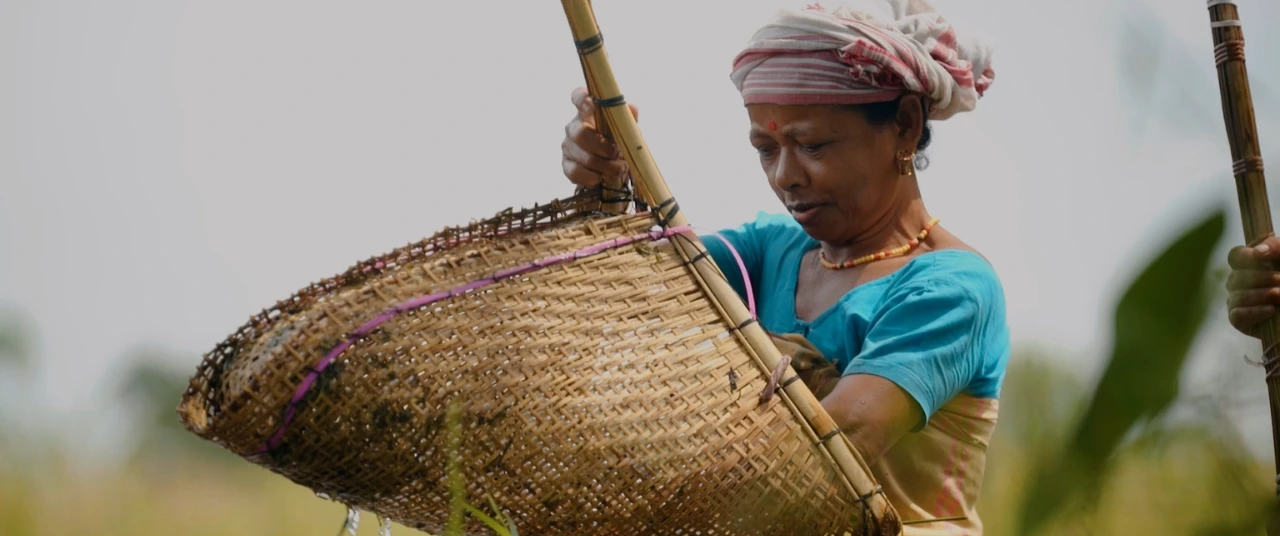Small farms hold the key to our food security






Evolving a satisfactory food and farming system has been a subject of intense debate in many countries. The goal is to find common ground among those who genuinely care about healthy, safe food; farmers' welfare through sustainable livelihoods; protecting the environment and biodiversity; and the well-being of farm animals.
Such a consensus must then be discussed in the specific context of various countries so that such policies can then be implemented in the context of the more special needs, problems and assets of any country, and this must be a high priority task for India too.
It's helpful for shaping policies when all the goals of a good food and farming system align. Providing safe, healthy food goes hand in hand with creating sustainable and fulfilling livelihoods for farmers. Both also support the goal of protecting the environment and other forms of life. This means the best policies arise from understanding how these goals work together and pursuing them without causing unnecessary conflicts.
Natural farming
Starting with farming methods, natural farming is the best option. This means avoiding harmful technologies and chemical inputs, but natural farming goes beyond that. It requires continuous, careful observation and a deep understanding of nature so farming can advance in harmony with nature rather than against it.
People often say that natural farming doesn’t produce enough, but this isn’t true. Natural farming works best with mixed farming, where different crops are grown together. When you look at the total food and fodder produced, well-managed natural farms often have higher yields. Plus, the yields from natural farming are sustainable over time. As the soil improves and water is conserved, the yields may even increase, unlike chemical-based farming, where the soil gets damaged, and yields tend to drop over time.
Moreover, natural farming supports pollinators like bees, as well as other helpful insects and birds. It also provides more space for farm animals, especially cattle, to be cared for in healthier ways, promoting the well-being of all forms of life.
In India, where most farmers are small-scale, natural farming is especially important because it costs much less than chemical-intensive, large-scale monoculture farming. Expenses like commercial seeds, chemical fertilisers, pesticides, herbicides, heavy machinery, and diesel can be greatly reduced or avoided. The approach also ties into the idea of rural self-reliance, or 'gram swaraj’. It encourages rural communities to meet their own needs as much as possible, especially in farming. Small farmers practising natural farming can be resourceful, using local materials often available for free.
%2520copy.avif)
Cutting farming costs also lowers farmers' debts. Low-cost farming that provides steady, sustainable yields strengthens the overall economy of farming. This can get even better with smarter mixed farming, improved crop rotations, and better soil and water conservation. Additionally, timely economic support from the government during bad weather would greatly benefit farmers.
All of this will help rural communities adapt better to climate change. Practices like improving soil conservation, boosting organic matter, planting more trees and cover crops, using less heavy machinery and diesel, minimising waste through a circular system, and avoiding chemical fertilisers and pesticides will reduce reliance on fossil fuels and contribute to climate change mitigation.
{{quiz}}
Food production
Natural farming helps farmers avoid harmful chemicals and reduces the risk of accidents from heavy machinery. At the same time, it produces healthy food free from chemical pesticides, herbicides, and fertilisers. Natural farming improves soil health and provides a balanced mix of nutrients, resulting in healthier, more nutritious crops and helps prevent health issues related to a lack of essential micronutrients. Further, natural farming has no room for genetically modified (GM) crops, protecting consumers from serious health risks associated with GM foods.
Natural farming with small farming communities is the best path for India. However, many rural households are landless and often among the poorest. Therefore, efforts should be made to provide small plots of land to those landless households willing to practise eco-friendly farming. This would significantly enhance food security for the poorest rural families in India.
%2520(1)%2520(1)%2520copy.webp)
The food system can greatly improve by boosting food processing activities in villages. This should have two main goals. First, small-scale processing can better protect food health and safety. Second, increasing food processing in villages can raise the income of many rural households, including those without land, by creating more jobs, especially for women, closer to home. It's important to recognise and respect the significant role women play in both food processing and farming.
Food processing should be better connected with marketing so rural communities can directly reach urban consumers and offer healthy, safe food at fair prices for both farmers and consumers. Such an approach also makes it easier to support nutrition programs like mid-day school meals and anganwadis by supplying them with fresh, healthy produce from local farms.
Government support
The government should buy grains, millets, pulses, and other products from local villages for ration shops or the public distribution system whenever possible. This would reduce unnecessary transportation costs and provide healthier local food.
Rural employment under MGNREGA, which helps with water and moisture conservation, usually pays cash wages, but at least part of the payment could be made with healthy food from natural farming sourced within the village.
The government should allocate more funds to support this ideal food and farming system and avoid wasting resources on schemes and technologies that are harmful to health and the environment.
Explore other topics
References




.avif)






